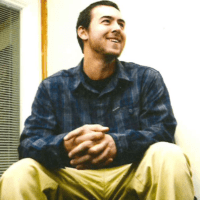Meditation practices and interventions, derived from contemplative religious traditions, have become increasingly popular in clinical, educational and scientific research contexts. Meditation is being applied to the treatment of a wide range of psychiatric conditions, from depression to psychosis, and implemented in schools, businesses and prisons to promote performance and wellbeing and decrease stress and anxiety. Because the popular enthusiasm and proliferation of meditation-based programs and interventions is founded largely within a western, medical health worldview, very little attention has been paid to the potential range of experiences that are traditionally expected to arise from meditation practice. For example, Buddhist texts such as the Visuddhimagga, The Five Ranks of Tozan, and The Avatamsaka Sutra outline a range of experiences that often accompany contemplative practices, including changes in perceptual capabilities, sense of self, emotional range and physiology. In addition to the often-cited stages of mental tranquility and euphoria, there are also well-documented stages that might be considered adverse, unpleasant, or challenging such as extreme fear, depression, hallucinations and involuntary body movements. While many of these difficult states are an expected part of proper meditative experience, improper practice can also result in a range of difficult experiences, such as extreme agitation, mania and psychosis. The first stage of this study aims to create a validated “Contemplative Experiences Scale” based on interviews with scholars, teachers, and practitioners of all major contemplative traditions. This scale will assess and measure the full spectrum of practitioners’ experiences and will be made available for future research.

Chris Kaplan, M.A.
Canticle Farm
Chris Kaplan received his M.A. in the social sciences from the University of Chicago, where he researched politically engaged Buddhism and the global justice movement. Since then, he has been … MORE

Nathan Fisher
University of California, Santa Barbara
Nathan Fisher received his BA in Religious Studies (Honors) from Vanderbilt University in 2011. He then joined the Clinical and Affective Neuroscience Laboratory at Brown University where he managed the “Varieties … MORE



